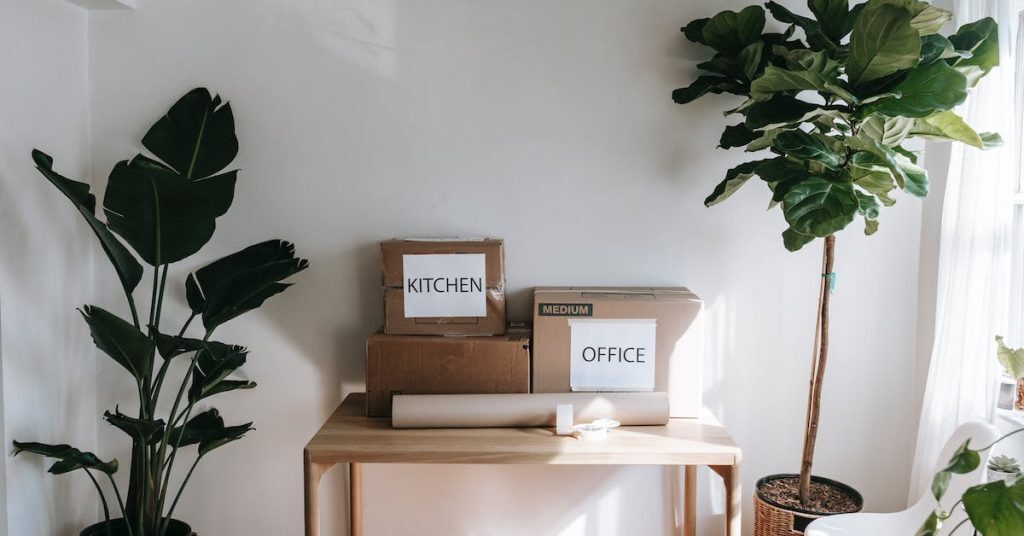Divorce and property settlement are challenging, and dealing with leftover belongings from your ex can further complicate matters. If your ex’s items are taking up space and affecting your peace of mind, it’s time to figure out your next steps.
Don’t worry; you’re not obligated to be their indefinite storage unit. Let’s figure out how long you have to keep their stuff and how to handle this situation fairly.
Table of Contents
ToggleCan I throw out my ex-partner’s belongings?
The rules around disposing of an ex-partner’s belongings can vary by state or territory and depend on the circumstances.
Generally, it’s important to approach this situation carefully to avoid potential legal issues, especially if the items have significant value or emotional importance.
Here’s a general guide, but note that it is always best to first consult with a legal professional for advice tailored to your situation:
- Communication: Try to communicate with your ex-partner and give them a chance to collect their belongings. It’s best to provide a reasonable deadline and document this communication if possible.
- Document Everything: Make a list of the items and, if possible, take photos. This documentation can be important if there are later disputes about the condition or existence of these items.
- Reasonable Time: You should give your ex-partner a reasonable amount of time to collect their belongings. What’s considered “reasonable” can vary, but generally, a few weeks to a month is considered fair, depending on the situation.
- Legal Advice: If the items are of significant value or if you’re concerned about the potential for legal issues, it’s wise to seek legal advice before disposing of anything. A property settlement lawyer can provide guidance based on your specific circumstances.
- Property Laws: Be aware of local laws regarding abandoned property. In some cases, you may be required to store the items for a certain period or take specific steps before disposing of them.
- Avoiding Damage: Do not intentionally damage or dispose of items in a way that could be seen as spiteful or malicious, as this could lead to legal repercussions.
- Small Claims Court: If there’s a dispute over the property, it may end up in small claims court or a similar venue, where a judge could decide the matter based on the evidence and communications between the parties.
If you are dealing with high-value or sentimental items, or if there’s a potential for conflict, seeking legal advice is the safest course of action. This ensures that any steps you take are lawful and minimise the risk of legal complications.
Also read: Can I Change Locks on My Husband? Australian Family Law Insight
How long do I have to give my ex-partner to collect their things?
There isn’t a specific one-size-fits-all legal timeframe for how long you must give your ex-partner to collect their belongings, as it can depend on various factors, including the nature of your relationship, the type of items, and any agreements you may have made. However, the general principle is to provide a “reasonable” amount of time. What constitutes reasonable can vary based on the circumstances, but here are some guidelines:
- Typical Timeframe: Although there’s no strict legal timeframe, a commonly accepted reasonable period is between 14 to 30 days. This gives your ex-partner sufficient time to arrange for the collection of their items.
- Consideration of Circumstances: The timeframe should also take into account any special circumstances that might affect your ex-partner’s ability to collect their belongings promptly, such as travel restrictions, health issues, or significant logistical challenges.
- Abandoned Property Laws: Be aware of any local laws regarding abandoned property. In some cases, if belongings are not collected within a certain timeframe, you may be able to dispose of them legally, but this typically requires you to make reasonable efforts to contact your ex-partner and allow them to retrieve their items.
Also read: What is Tenants in Common in Divorce Settlements
What if my ex-partner refuses to pick up their stuff?
Unfortunately, an uncooperative ex-partner can make handling their belongings incredibly frustrating. Here’s what you can do:
- Continued Efforts: Document ongoing attempts to contact your ex, offering pick-up arrangements or alternative solutions (like dropping off the items at a mutual friend’s place). This proves you’ve gone above and beyond with “reasonable notice.”
- Storage Option: Consider temporary, paid storage. Be sure to inform your ex-partner of this new location and that they will be responsible for storage fees if items are not retrieved.
- Written Disposal Notice: Issue a final written notice that unambiguously states:
- A list of the items
- Where they are being held
- A definitive deadline for collection
- There is clear wording that items may be sold or disposed of if the deadline is not met.
- Follow Through: If the deadline passes with no response, you’re within your rights to:
- Sell the items: Document the sale and use the proceeds to offset storage costs and any remaining balance can be held in case your ex requests it later.
- Dispose of the items: Especially if storage is a continued burden and items are of low value.
Also read: Selling Property Before Finalising Divorce in Australia
Can I sell my ex-partner’s stuff if they don’t take it?
Yes, you can potentially sell your ex-partner’s stuff in Australia if they don’t take it, but there’s a specific process you must follow to do so legally:
- Exhausted Reasonable Efforts: Ensure you’ve provided ample notice and multiple opportunities for your ex to collect their belongings. Document all your communication attempts thoroughly.
- Final Disposal Notice: Provide a clear, written notice stating:
- A detailed list of the items you intend to sell
- The date by which they must be collected if they want to prevent the sale
- Explicit wording explaining their belongings will be sold if not retrieved.
- Proceeding with the Sale: If the deadline passes:
- Make reasonable efforts to sell the items at fair market value.
- Keep detailed records of the sales, including prices obtained.
- Handling the Proceeds:
- Deduct any outstanding storage costs or expenses incurred due to your ex’s inaction.
- Hold the remaining balance of the money. In the unlikely event your ex later tries to claim compensation, this shows you acted in good faith.
Dealing with leftover belongings after a split? Get clear on your rights.
Navigating the legal complexities of property after divorce can be daunting. Don’t let your ex-partner’s belongings add to the stress.
The experienced team at Justice Family Lawyers can provide personalised advice and guide you through your options.
Contact us today for a confidential consultation and reclaim your space.
Principal of Justice Family Lawyers, Hayder specialises in complex parenting and property family law matters. He is based in Sydney and holds a Bachelor of Law and Bachelor of Communications from UTS.






